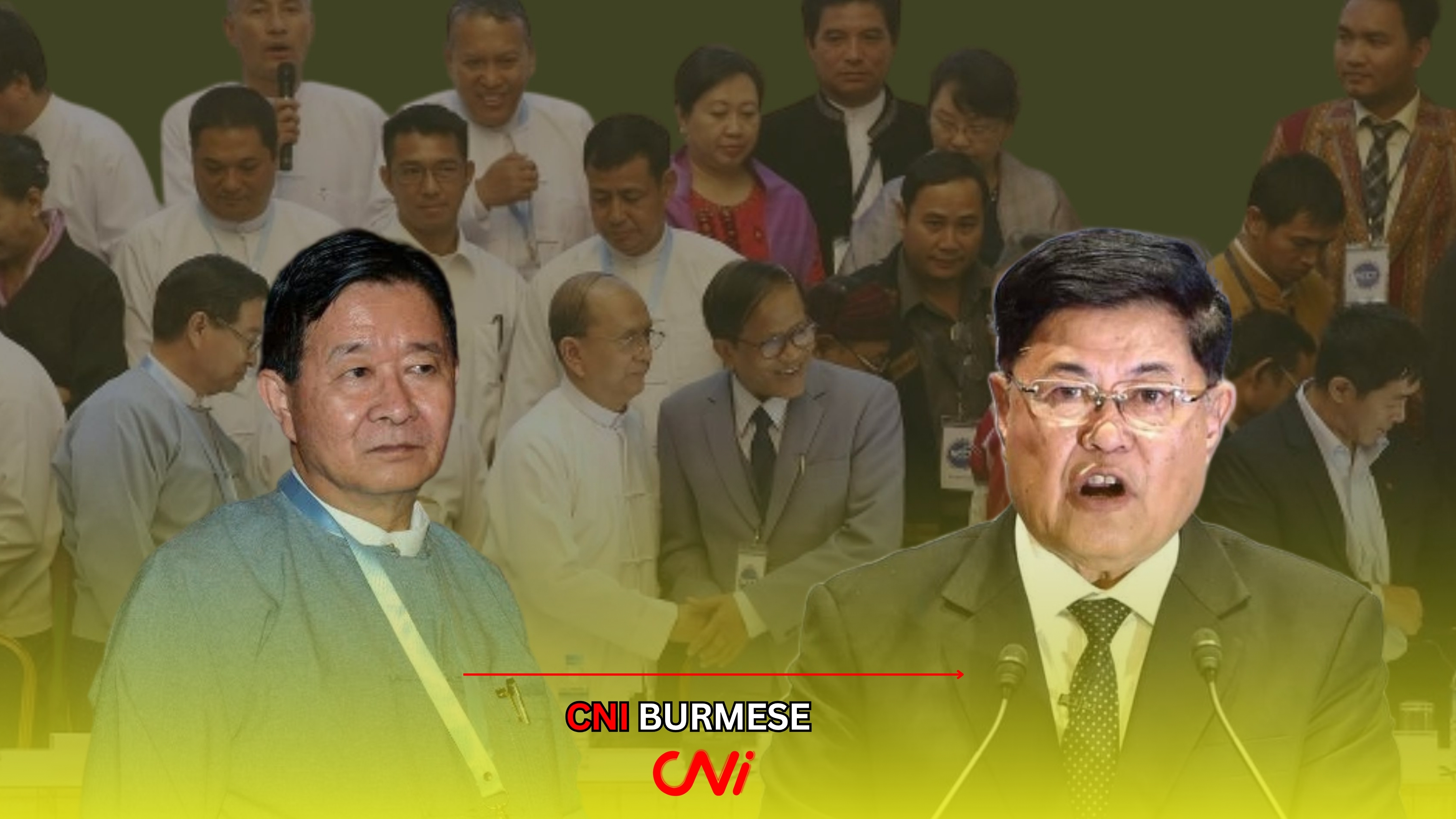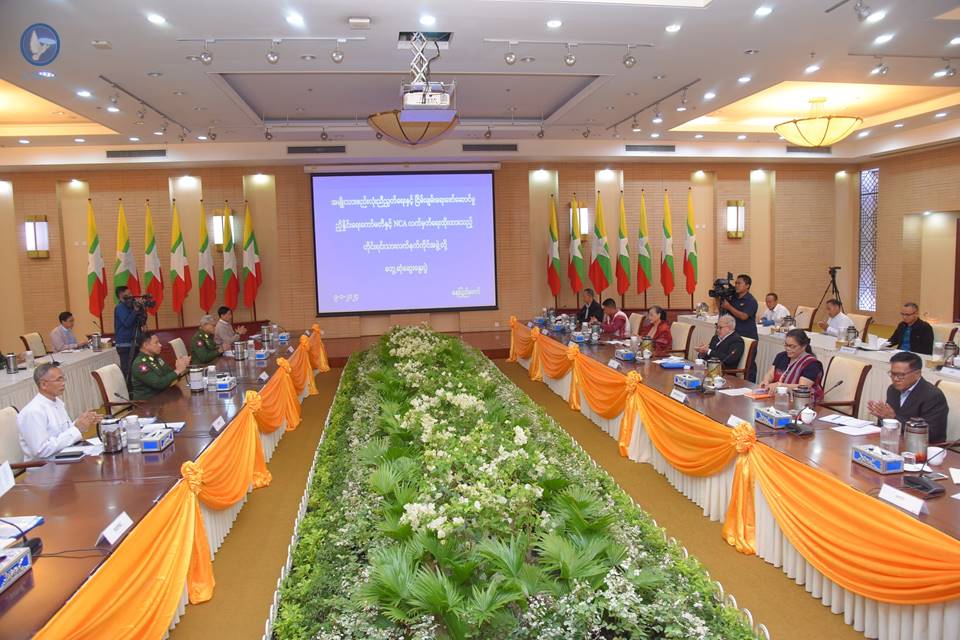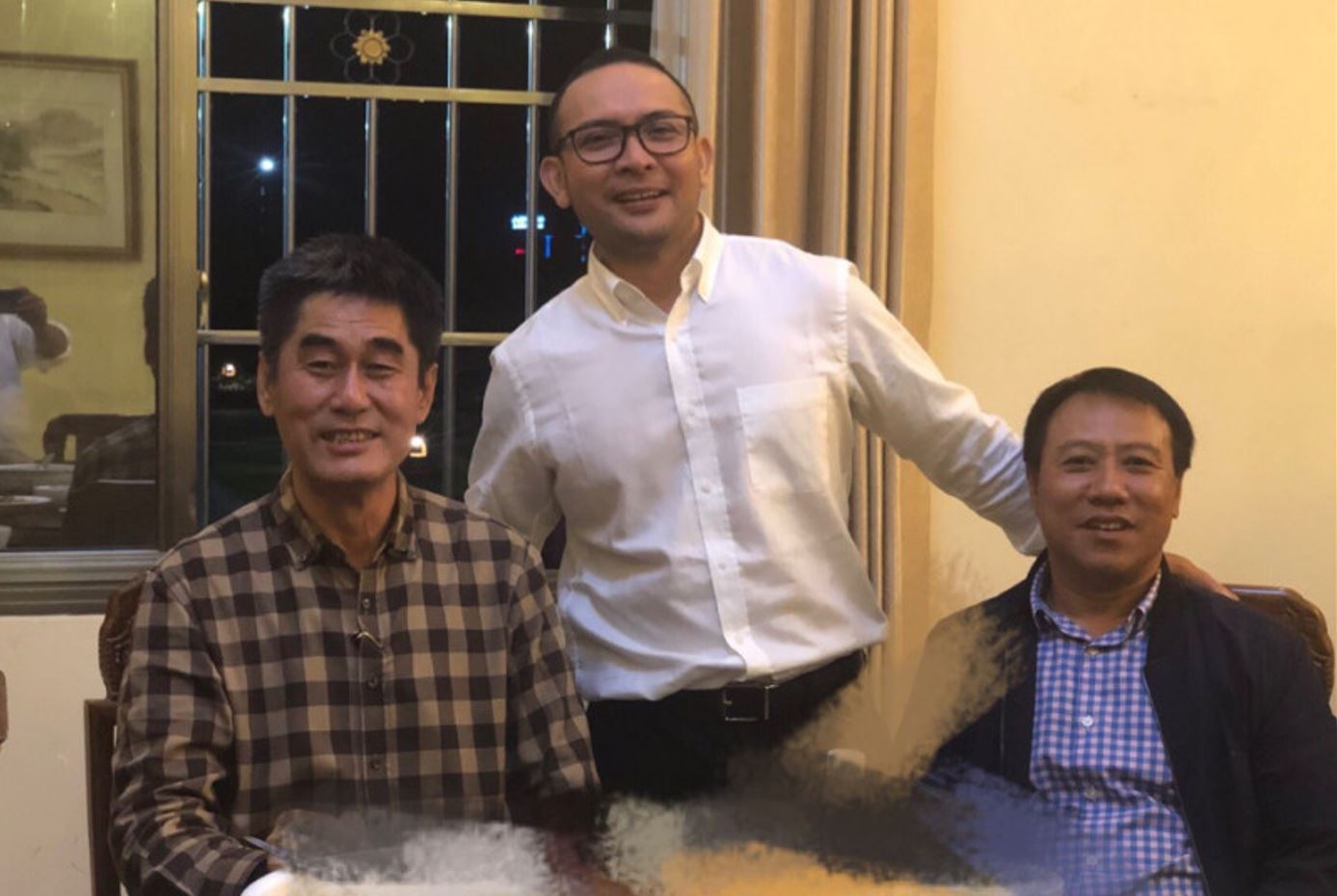CNI News
11 October 2025
In the current political situation in Myanmar, figures who had served as negotiators during the administration of former President U Thein Sein should be brought back to participate in dialogue, said Colonel Khun Okkar, Chairman of the Pa-O National Liberation Organization (PNLO-NCA/S), in an interview with CNI News.
He also stated that relevant leaders should reconsider their approach of only accepting meetings with invitees who attended, instead of taking the initiative to go out and meet counterparts directly.
“U Thein Sein is old now, but there are people he used to work with — people like U Aung Min and U Soe Thein. They are skilled individuals who were very capable in dialogues and negotiations, both formally and informally. If such experienced people were given authority and brought back into action, it could help restore communication channels. Now, it will be better if such people are formed into a negotiation team. At present, there is no such team. When others come to meet, the military goes out to meet them. But the military hardly goes out and meet with other groups. That’s something leaders should rethink. If they truly want peace, they should be willing to go and meet others themselves — that’s how informal meetings begin. But right now, that kind of informal discussion doesn’t happen. They only invite people to Nay Pyi Taw. And usually, those who come to Nay Pyi Taw are already allied organizations. So yes, they can meet. But for those groups currently regarded as enemies, it’s impossible for them to go to Nay Pyi Taw.”, said Colonel Khun Okkar.

On September 26, 2024, the State Administration Council (SAC) announced an invitation to ethnic armed organizations and People’s Defense Forces (PDFs) to lay down their arms and resolve political issues through political means.
Furthermore, Senior General Min Aung Hlaing stated at a peace forum held in Nay Pyi Taw on June 25, 2025, that the door to peace remains open for groups including the PDFs and other “terrorist organizations.”
However, military and political analysts have pointed out that these peace overtures have not been effective.
Currently, most ethnic armed organizations fighting against the Myanmar Tatmadaw are primarily focused on ethnic rights, while the National Unity Government (NUG) is pursuing democracy and ideological goals, said political analyst Dr. Aung Myo in an interview with CNI News.

“Their stances are different. For example, if we ask, ‘Are we talking about ethnic armed groups or the NUG?’ — that’s the key question. Ethnic armed groups focus on ethnic rights, while the NUG emphasizes democracy and ideology. The current government also claims to be pursuing democracy and ideology. So, in that sense, both sides — the NUG and the military — claim to be walking the same path toward democracy. That means there’s nothing to talk about; the military won’t see any point in engaging with the NUG. But when it comes to ethnic issues, that’s where dialogue is still possible. So, the NUG, as an ideological group, is unlikely to be accepted by the Tatmadaw, while ethnic-based groups might still be acceptable.”, said Dr. Aung Myo.
Analysts further noted that while the authorities are inviting dialogue, such talks are difficult to hold formally because the groups being invited have been officially declared terrorist or unlawful organizations.
Therefore, some suggest that removing these groups from the terrorist list would be a necessary step to enable genuine dialogue. They added that informal discussions about such removals have reportedly been taking place in some meetings.
Despite ongoing invitations to peace talks, the lack of an official negotiation team has made progress difficult, said Colonel Khun Okkar of the PNLO-NCA/S.

He explained:
“Yes, peace invitations are being made. But without a negotiation team to carry them out, it becomes difficult. During President U Thein Sein’s time, when peace talks were held, a negotiation team was immediately formed and sent to facilitate informal meetings. Now, without such a team or informal outreach, just sending invitations doesn’t lead to meaningful dialogue.”
According to him, the Myanmar Tatmadaw should also establish clear criteria and standards for engaging with armed groups in peace processes — defining what conditions need to be met for acceptance.
Previously, the military had refused to recognize groups such as the AA, TNLA, and MNDAA, citing that they lacked sufficient military strength, controlled territory, or ongoing battles at the time. However, it had expressed willingness to include those who laid down their arms in the peace process.




